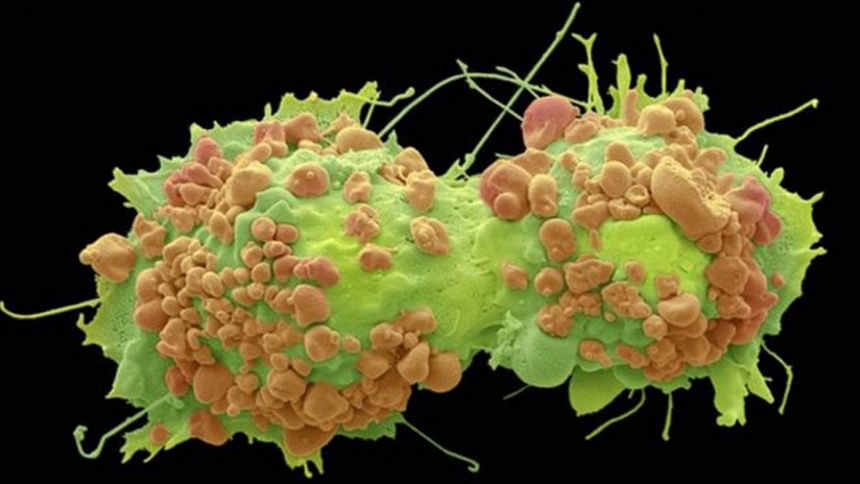Turning cancer into healthy tissues

Scientists believe they may have found a way to turn cancerous cells back into healthy tissue.
Their lab-based work suggests there is a biological step that can restore normality and stop cells replicating out of control.
When the US researchers added molecules called microRNAs, it put the brakes on cancer, Nature Cell Biology reports.
Although the early tests in a dish look promising, it is unclear whether it will help treat people with cancer.
The Mayo Clinic researchers are hopeful that the new mechanism they have found could apply to all types of cancer.
Putting on the brakes
It brings together two strands of science - cell adhesion and microRNA (miRNA) biology - that, until now, had not been linked.
Scientists had thought adhesion molecules were simply the glue that holds cells together. But then others found they might have signalling roles.
The Mayo Clinic work shows adhesion molecules connect cells and signal via miRNAs to control cell growth.
If this becomes deregulated it can drive cancer.
But replenishing cells with miRNAs can remedy this.
Lead researcher Dr Panos Anastasiadis said: "By administering the affected miRNAs in cancer cells to restore their normal levels, we should be able to re-establish the brakes and restore normal cell function.
"Initial experiments in some aggressive types of cancer are indeed very promising."
Henry Scowcroft, Cancer Research UK's senior science information manager, said: "This important study solves a long-standing biological mystery, but we mustn't get ahead of ourselves.
"There's a long way to go before we know whether these findings, in cells grown in a laboratory, will help treat people with cancer. But it's a significant step forward in understanding how certain cells in our body know when to grow, and when to stop. Understanding these key concepts is crucial to help continue the encouraging progress against cancer we've seen in recent years."

 For all latest news, follow The Daily Star's Google News channel.
For all latest news, follow The Daily Star's Google News channel. 



Comments